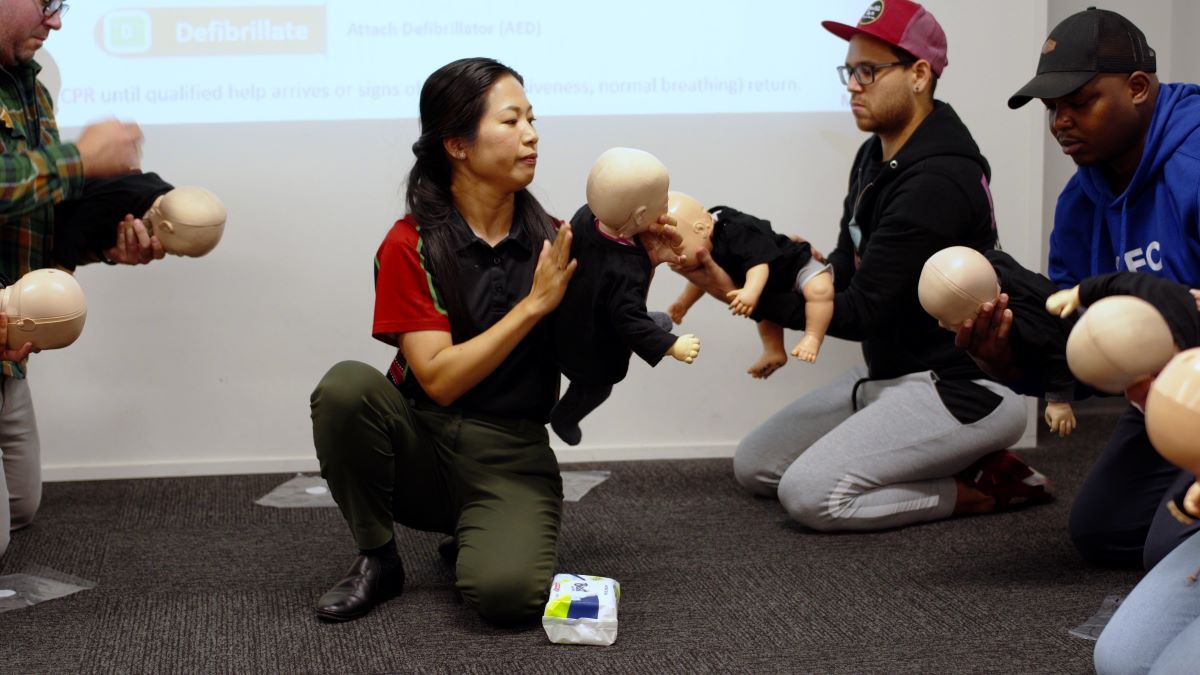World Asthma Day is observed this the 5th of May 2020.
The Global Initiative for Asthma (GINA) has decided the World Asthma Day will be held every month of May to raise awareness of asthma globally.
In 1998, the first World Asthma Day was celebrated in more than 35 countries in conjunction with the first meeting in Barcelona, Spain. Since then, participants from all over the world has increased, and the 5th of May has easily become one of the world’s most important Asthma Awareness event.
Understanding Asthma
Asthma results from chronic inflammation of the lungs in which the airways will narrow, swell, and produce extra mucus. Asthma attacks can make breathing difficult for you. It can also trigger frequent coughing, wheezing, and shortness of breath.
Asthma is called a chronic respiratory disease because it is a long-term lung disease. For some, an asthma condition is considered a minor ailment. But for others, asthma can be a major blocker as it interferes with the performance of normal daily activities. Worse, it can lead to a life-threatening asthma attack.
World Health Organisation (WHO) recognises asthma as major public health importance. According to WHO statistics, about 339 million people have Asthma condition worldwide. In 2016, there were an estimated 417,918 asthma deaths at a global level.
The number of people who have Asthma conditions continuously increases. In Australia, for example, where there is a very high asthma incidence affecting over two million. Asthma affects one in four children and one in ten adults in Australia.
Currently, asthma has no permanent cure. However, its symptoms can be controlled. This condition tends to change over time, making it essential to work closely with your doctor to trash your asthma signs and symptoms. You may also need to adjust your treatment if necessary.
Uncovering Misconceptions About Asthma
The 2021 World Asthma Day theme is “Uncovering Asthma Misconceptions.”
The theme addresses common widely held myths and misconceptions surrounding asthma that prevent persons with asthma from living their best life.
Here are some common misconceptions surrounding asthma:
- Asthma is a childhood disease; children will grow out of it as they grow older.
- Asthma is infectious.
- People with asthma should not exercise nor engage in physical activity.
- Asthma is only controllable with high-dose steroids.
In this article, we will debunk all these misconceptions surrounding asthma and set the fact straight once and for all.
Myth #1: Asthma is a childhood disease.
Truth: Asthma is a life-long disease, and one does not outgrow it from childhood.
Asthma often begins during childhood, but it can occur at any point in our lives. It is a common misconception that asthma grows out with us as we age, which is not exactly true. Most asthma symptoms improve as we get older, but symptoms may worsen again in our adult years.
Doctors cannot fully explain why asthma symptoms tend to get better as we grow older. But that does not guarantee that asthma is gone forever. The explanation for this is that as we grow old, our lungs grow and develop, better compensating for asthma triggers and symptoms. About half of children who have asthma (between ages two and 10) notice a drop in symptoms as they age. But the tricky part about asthma is it can come back anytime, and new trigger symptoms may develop.
Even after long periods without symptoms, an asthma attack can happen without warning. According to CDC, adult fatalities from asthma are at rates five times greater than those of children.
For that reason, never assume that you will no longer follow your asthma treatment and medication. Talk with your doctor about updating your Asthma Action Plan.
Asthma can also develop in adults who never experienced symptoms in their childhood years. The Common triggers of adult-onset asthma include severe allergic reactions, obesity, or exposure to harmful chemicals or irritants in the workplace (occupational asthma).
Myth #2: Asthma is infectious.
Truth: Asthma is non-infectious.
The asthma condition is not infectious. However, viral respiratory infections, including the flu and other common colds, trigger asthma attacks. In children and adolescents, asthma attacks are frequently associated with allergies. Asthma in adults is less likely related to allergies.
Myth #3: People with Asthma should not exercise nor engage in other physical activities.
Truth: Being active helps you maintain a healthy weight, which can lessen asthma symptoms.
While it is a common thought that exercising and being involved in any physical activity would make asthma worse, experts recommend that people with asthma stay physically active. Regular exercise has many health benefits. For best results, consult with your doctor on what kinds of exercise are right for you.
Daily activities such as walking, hiking, and swimming are recommended for anyone. You may also join team sports that only require short bursts of energy, such as baseball and short-course track and field events. Avoid sports that can make asthma symptoms worse, such as skiing and ice hockey.
Myth #4: Asthma is only treatable with high-dose steroids.
Truth: Steroids can tone down asthma attack outcomes, but it has side effects.
The word steroid is often associated with the anabolic steroids that are used in building muscle. Yet, steroids may refer to different chemical types based on their structure. Corticosteroids are similar to the hormones produced in the body.
A 2012 study by the researchers at the National Institute of Health and other federal agencies has discovered that inhaling a high dosage of corticosteroids can prevent worse asthma symptoms and results.
But the use of steroids as an asthma treatment has a bad reputation. Inhaling a high dosage of corticosteroids can lead to addiction and may stunt the growth of children.
Other side effects of steroid use include sore throat, hoarseness, nosebleeds, and oral thrush or fungal mouth infection. High dose or incorrect use of the steroid inhaler can result in a much more severe side effect. It is best to do a risk-benefit assessment with your doctor.
Do not fall into these myths. Knowing the facts about asthma is crucial and can mean the difference between successfully controlling this ongoing condition. Learn First Aid for Asthma to know more about asthma symptoms and treatment as a way of celebrating World Asthma Day.







